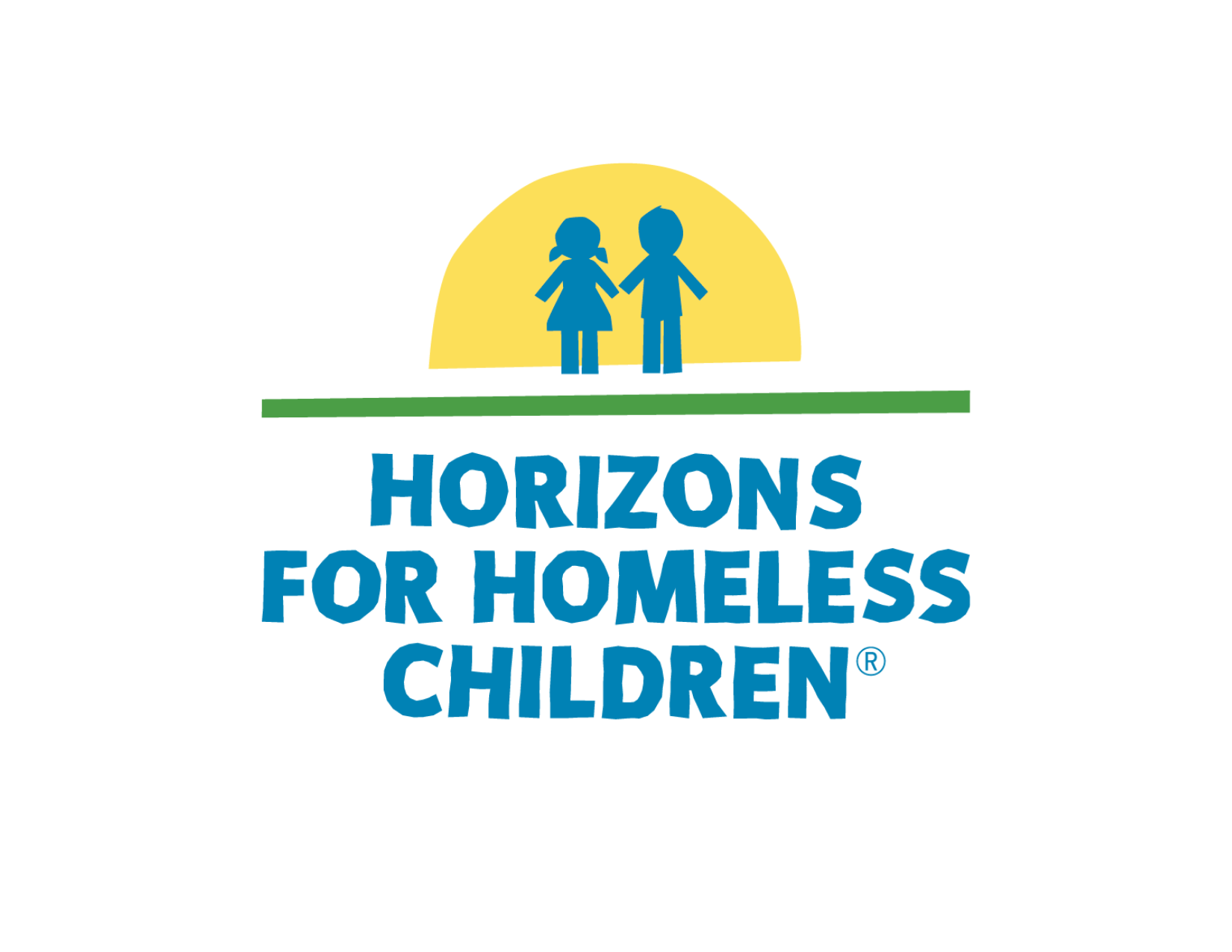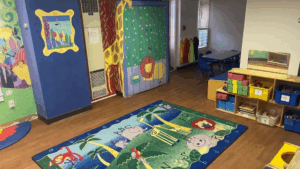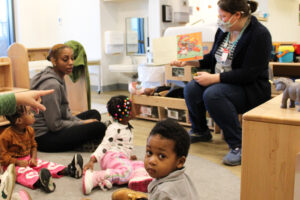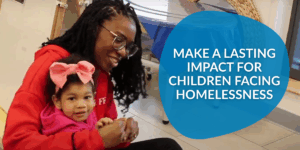Meeting the Moment: Re-imagining Playspace during the Pandemic
Since its inception more than 30 years ago, the Playspace program has created, staffed, and maintained trauma-informed playrooms in family homeless shelters across the state of Massachusetts, focused solely on serving children experiencing homelessness.
However, with the challenges imposed by the COVID-19 crisis, including the statewide closure of these playrooms, the team had to find new ways to reach young children living in shelter. The team responded by adding another dimension to their work. If volunteers couldn’t have enriching interactions with children directly, Horizons could help parents grow their parenting toolkit so they could. The parent workshop was born.
“Creating parent focused workshops is an expansion of what we already do in Playspace,” said Lynne Gaines, Horizons’ Statewide Playspace Director. “Our mission is to change the lives of children experiencing homelessness across the state through play. The workshops build on that, showing parents of young children ways they can use play to help their child develop and learn.”
The Workshops
Separate from Horizons’ Family Partnership Program, which works with parents of children enrolled in the Edgerley Family Horizons Center, this new initiative works with parents in shelters across the state, regardless of whether their child attends school at Horizons. Parents living at any participating shelter in Massachusetts can take advantage of the workshops.
The program consists of five 30-minute workshops led by Lynne Gaines, Horizons’ Statewide Playspace Director. The workshop is offered two times per week, Tuesdays at 6 pm and Wednesdays at noon. The topics of the workshops are play, social-emotional learning, language and communication, behavior and routines, and literacy. The workshop focuses on one topic per week.
The workshops are an open forum; parents can ask questions, share concerns, and connect with other parents in similar circumstances. Grounded in the realities of the families for whom they are created, the courses are tailored to focus on the unique needs of parents raising young children in shelter.
“We’re showing parents things they can do every day, in shelter, to build on their child’s development,” said Lynne.
There are also self-guided versions of the workshops that parents can go through on their own time. The online versions are supplemented by videos and tip sheets that help parents practice the skills they’ve learned in real-time.
These everyday activities include things like incorporating extra tummy time when changing a diaper, holding objects next to your face when talking about them to your baby, playing peek-a-boo with a washcloth, or reading to your baby during meals. Ideas are shared with sensitivity and solutions to help overcome the unique challenges of parenting in shared shelter space.
“There are so many things parents can do to advance development that don’t involve fancy toys,” said Lynne. “It’s the repetition of the small things that add up to make a difference.”
Creating a Sense of Community
For many parents, living in a shelter can be an isolating experience. This initiative creates a safe space for parents in like circumstances to connect over their shared experiences.
“For these parents it makes such a difference to know they are not alone. There are other parents going through this.”
Horizons’ team is partnering with shelter liaisons to help make these classes accessible to parents. Shelter support has been critical in making these classes a success, working with Horizons to help promote the classes and encourage parents to join. As enthusiasm for the courses grows, Horizons’ hopes to transition to an in-person model in the future.
Horizons also has plans to add a parent as a co-facilitator, someone who has been through the program and can guide other parents.
“We know parenting is a journey,” added Lynne, “We’re here to support parents on that journey however we can.”
A New Direction for Playspace
“As we continue to support children experiencing homelessness through this pandemic and beyond, working directly with parents is one way we can meet the moment and continue to be a consistent resource for families in shelter,” said Tara Spalding, Chief Marketing, Development and Volunteer Engagement Officer at Horizons. “It marks the beginning of a move to a two-generation model for Playspace.”
A two-generation model tackles the root causes of homelessness, working with both children and parents to lift the entire family out of the cycle of homelessness.
Horizons’ is committed to understanding the emerging needs of families and responding with programming that will help them grow as parents. This is an example of how Horizons continues to find new and innovative ways to help families and leave a lasting impact on our communities.
This post was written by Rachel San Giacomo, a regular contributor to Horizons’ blog.




